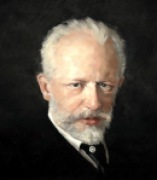Feeling the chill of winter coming on? Warm it up by booking for one or both of our opportunities for adults, or tickets for the Festival Chorus Concert.
 Blow the Dust is for instrumentalists, including recorder players, on Saturday 7 January 2017 at Nottingham’s Albert Hall. We suggest Associated Board Grade 2 and above (or equivalent). You will play in different groupings of instruments to give you a wide and enjoyable experience during this orchestral playing day. If you play the recorder, any size of recorder, the ensemble meets in the afternoon only. For more details, click here.
Blow the Dust is for instrumentalists, including recorder players, on Saturday 7 January 2017 at Nottingham’s Albert Hall. We suggest Associated Board Grade 2 and above (or equivalent). You will play in different groupings of instruments to give you a wide and enjoyable experience during this orchestral playing day. If you play the recorder, any size of recorder, the ensemble meets in the afternoon only. For more details, click here.
What will we be playing?
The music has been chosen to give scope to players of all abilities and will include Berlioz’s rousing Hungarian March, Tchaikovsky’s lyrical Waltz from his Serenade for Strings especially arranged for full orchestra, the well known Trumpet Tune by Purcell and Elgar’s stirring Pomp and Circumstance March No 4.
There will also be items for windband (conductor Gill Henshaw) and string orchestra (conductor Ann-Marie Shaw). The recorder ensemble will have a varied diet of music carefully chosen by their conductor, Chris McDouall.
 The Nottingham Festival Chorus event is spread over two weekends. The rehearsal course, always fun and a challenge to polish up those notes and your singing ability, will be led by Angela Kay, and takes place on Saturday 28 and Sunday 29 January at the Bluecoat Academy, Aspley. The final rehearsal and concert are the following Saturday 4 February in the Albert Hall. For more details, click here.
The Nottingham Festival Chorus event is spread over two weekends. The rehearsal course, always fun and a challenge to polish up those notes and your singing ability, will be led by Angela Kay, and takes place on Saturday 28 and Sunday 29 January at the Bluecoat Academy, Aspley. The final rehearsal and concert are the following Saturday 4 February in the Albert Hall. For more details, click here.
What will we be singing?
This year, there are two works. One of the favourites of the choral music repertoire, Haydn’s Nelson Mass, which is packed full of memorable themes and classic choruses. And then, from the declamatory opening to the final exultant flourish of chorus and orchestra, Dvorak’s Te Deum is a joyous whirlwind of vitality and excitement! We are delighted to welcome Marcus Farnsworth as guest conductor of the concert. What a privilege and treat.
Concert: To book tickets for the Festival Chorus’s concert, click here.



 violin and piano, six symphonies and other orchestral works. He wrote songs, instrumental music and opera, the best known of which is Eugene Onegin. He was a troubled man from a young age until his death. Whether he died from natural causes or suicide remains a point of conjecture. He wrote music of passion and deep emotion, but by no means all melancholic. Music, it’s good for the soul.
violin and piano, six symphonies and other orchestral works. He wrote songs, instrumental music and opera, the best known of which is Eugene Onegin. He was a troubled man from a young age until his death. Whether he died from natural causes or suicide remains a point of conjecture. He wrote music of passion and deep emotion, but by no means all melancholic. Music, it’s good for the soul.